In his Charge to Synod, Bishop Shane Parker outlined six results to be prioritized and achieved in the current triennium (three-year budgetary and planning cycle). These priorities emerged from the diocesan church-wide Shape of Parish Ministry discernment process. Presentations throughout Synod updated members on progress made toward these goals.
Result 1 — Less reliance on parish revenue
Developing central resources so the Diocese is less reliant on parish revenues to fund shared operations and staffing. This is intended to leave more money in parishes.
Result 2 — More support for parish leaders
Providing increased assistance and support to parish leaders from the directors and staff of Ascension House, who offer expertise in communications and stewardship development, financial and legal matters, liturgy, human resources, governance, and property and asset management.
Result 3 — Guiding parishes facing major change, promoting collaboration
Providing guidance to parishes facing major change and promoting collaboration and innovation across our diocese. The bishop is directly involved in achieving this result and continues to work with parish leaders to discuss options and support their decisions concerning major change.
Result 4 — More training for parish leaders and more clarity on structures
Review and revise Canons, Bylaws & Regulations (CBRs) to bring clarity to parish structures. Parish leaders will receive more training and learning opportunities, and there will be a clear understanding of how parishes operate.
Result 5 — Learning Commons and Parish Development
A Learning Commons and Program for Parish Development will provide resources, knowledge and practical instruction on all essential aspects of Resource Hubs, Knowledge Networks and a Program for Parish Development will provide resources and practical instruction on all essential aspects of parish ministry.
Result 6 — Contextual Mission and New Worshipping Communities
We will learn how to practice contextual mission as we engage with the world and establish new worshipping communities.
In one of the first presentations at Synod, directors of several departments at Ascension House provided progress updates on:
Result 1 — reducing reliance on parish revenues to fund the diocesan operating budget — and Result 2 — diocesan staff will provide increased assistance and support to parish leaders.
Financial Ministry
Sanjay Grover, director of financial ministry, reported on actions to achieve Result 1
- Proportional Parish Share (PPS) was reduced by $460,000 from the 2023 financial statements to 2024 diocesan budget.
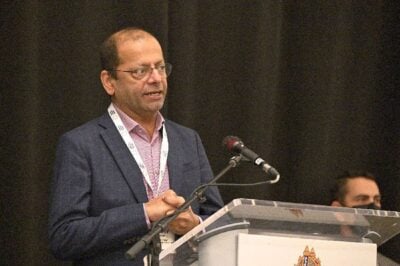
Sanjay Grover, director of financial ministry
It’s “quite an achievement from my perspective, as we have been able to reduce PPS by 20.5% reduction in one year,” said Grover. “And this is built into our triennial budget, so for the next three years, our PPS is primarily frozen at that number.” He explained that dividends from central/diocesan trust funds were used to compensate for the reduction.
Other actions included:
- Discontinuing the Clergy Retirement Fund at the end of 2023. The fund was 1% of payroll, and so its end translates to about $50,000 in savings annually. These cost savings will be passed on to parishes through the ECOPS billings process for 2025, he said. Questions from Synod members led to a clarification that the Clergy Retirement Fund was not related to clergy pension funds.
“Our Diocese will try to minimize ECOPS inflationary increases by absorbing them internally to the best of our financial abilities for 2025 and onwards,” he added.
Grover also gave a detailed account of the many services and supports he and the two staff members in the finance department provide to parishes (Result 2). A few of the statistics he shared were that financial ministry staff:
- Process 3,150 disbursements from the General Fund in 2023, and 900 from the Central Trust Fund. This work generates an average of 312 emails per week.
- Send and receive more than 2,000 telephone calls per year and 6,000 emails regarding payroll for staff on central pay for both parish and community ministries
- Manage the Central Trust Funds, currently valued at more than $60 million
- Send out monthly Parish statements after incorporating ongoing changes
- Prepare and communicate annual Proportional Parish Share and ECOPS for every parish
- Prepare monthly financial statements for all functional areas of the Diocese
- Negotiate annual insurance renewals.
Property and Asset Management
Director Joel Prentice outlined some of the ways his work is contributing to Result 2 — increased assistance to parishes.
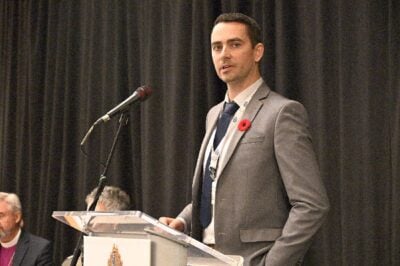
The now completed diocesan building survey provides an inventory of building and property assets that Prentice says has been useful in many cases when parishes ask for his advice regarding maintenance of their properties.
It has helped him link parishes that have similar assets such as solar panels so they can compare notes and help each other.
He encourages parishes to do preventative maintenance rather than reactive work and repairs.
Prentice is working with his provincial counterparts in the Bereavement Authority of Ontario to make the reporting requirements around cemeteries manageable and sensible.
Property disposition — $5 million in excess properties were liquidated in 2024. Annual leases, whether that be parking or residential, have been worth $200,000.
Working with colleagues and clergy on the 35-unit Hollyer House affordable housing project, which opened this year has been rewarding, Prentice said. Some women from Cornerstone Housing for Women had moved into the building in the first week of November.
Following the fire at St. Luke’s Anglican Church (and St. Luke’s Table) in 2022, the building has been restored. Further renovation work is now a priority.
Prentice also helped Centre 105 in Cornwall, Ont. apply for a $108,000 grant from the Ontario Trillium Fund, which has now been used to add accessible washrooms and a shower.
Communications, Development and Digital Solutions (Result 2 – increased assistance to parishes)
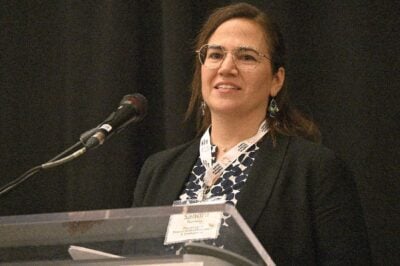
Communications
Director Sandra Hamway reported that “the Anglican Diocese of Ottawa (ADO) website (with total visits this year of nearly 76,000) serves as a vital connection point for our Anglican faith community and beyond. Every tool, resource and update are here to support your ministries, helping you grow engagement, keep communities informed and strengthen connections for a vibrant parish life,” she said.
- Social media: “With nearly 40,000 people reached on Facebook alone, we’re expanding engagement and creating spaces for meaningful interaction,” she said.
- Publications: This past year, more than 171 stories were published in Crosstalk and Perspective. “Each story reflects our shared journey, highlighting the impact of our diocesan work and engaging our audiences through storytelling,” Hamway said.
Communications also provides support and guidance to parishes and ministries regarding media inquiries and crisis communications.
Development
Development plays a vital role in supporting both parishes and community ministries by providing guidance, resources, and funding information. Hamway said the department offers parishes guidance in several key ways:
- acting as the Ascension House liaison to the Episcopal Panel on parish stewardship
- consulting with stewardship experts and developing practical training tools and resources
- providing presentations and materials for congregations.
“With grants, our role includes raising awareness of funding opportunities and helping parish leaders navigate the sometimes complex application process,” Hamway said. “Over the past year, our support has helped several parishes secure a total of $25,000 in grants from the Anglican Foundation of Canada.
Digital Solutions
Hamway reported that the department led four key initiatives to make it easier for parishes and community ministries to connect, collaborate and securely access essential information.
- moved Ascension House to a new Microsoft SharePoint system, essentially cloud solutions, improving email, adding new tools and increasing security
- expanded digital access to Crosstalk with an online edition, Perspective
- developed a parish-focused landing page on the ADO website to provide essential resources in one easy access location.
Work is underway to create a secure gated portal on the ADO website, which will provide clergy and parish leaders private access to resources, including upcoming Resource Hubs
Human Resources (Result 2 – increased assistance to parishes)
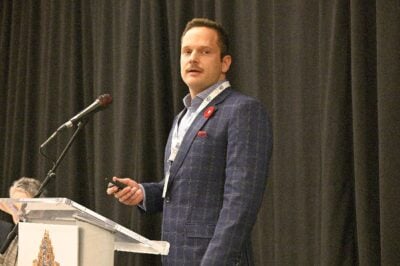
Director Paul Lex reported that in the last year, 72 new employees were hired across the diocese in parish and community ministries, while 59 employees left, resulting in an increase of about 6%. Ascension House now supports 247 employees across the diocese. “On average, it took us a little bit over 29 days from when a parish reached out to us to fill a role…. And this includes some background checks, reference checks, some writing contracts. And to fill all those roles, Petra [Ghazleh] and myself, we screened almost 3,500 candidates, resumes, application packages. And of those, we ended up interviewing 357 employees, almost 250 on the phone and 114 in person that could be at the parish, at either of the community ministries, or at Ascension House.”
He added that they have also worked with the Workplace Safety and Insurance Board after employees had an accident creating return to work plans and processing their payments, as well as working with short and long-term disability claims. “We’ve done workplace investigations, workplace safety, joint health and safety committees and also performance management.”
Related articles:
Bishop provides guidance for parishes facing major change
Time of Prayer resources posted
Contextual mission guide online
Telling our parish ministry story
Synod renews commitment to work for housing justice
Guest speaker encourages Synod to focus on the deep spiritual question of ‘Why?’
Archbishop of Jerusalem sends greetings
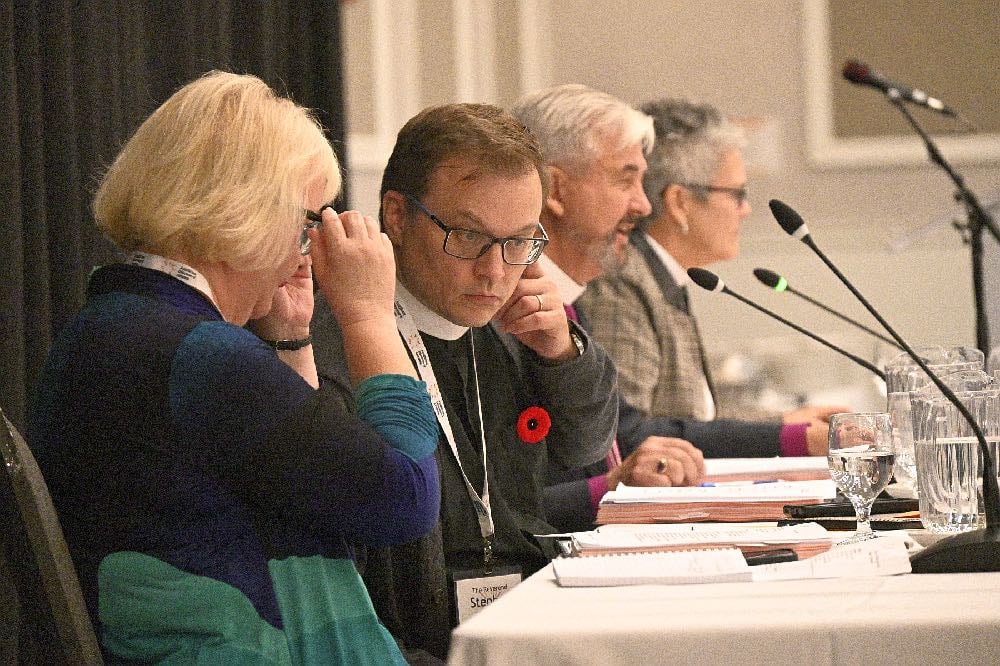

Saint Mary’s Church, Westmeath — Deanery of the Northwest